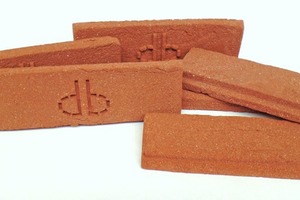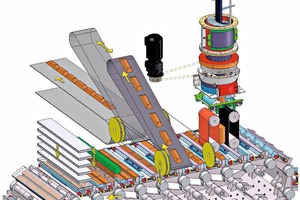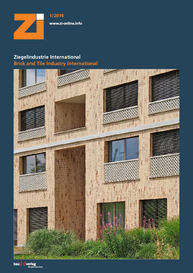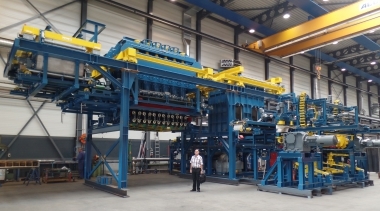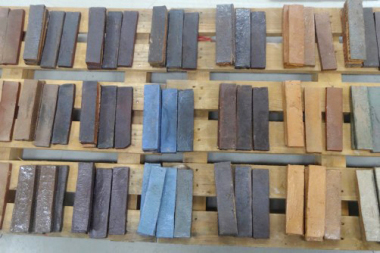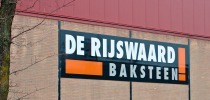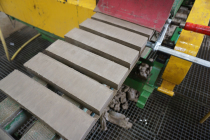New De Boer plant for the production of soft mud brick slips
The Dutch phrase “ceramic wallpaper” has existed for several decades. This expresses that a wall also has an aesthetic function in addition to its purely structural purpose. In most cases, such a “ceramic wallpaper” has a thickness of about 100 mm, but actual wallpaper is 1 mm thick at most and on a roll. De Boer Machines Netherlands has developed a new system that is able to shape brick slips with a thickness that comes closer to wallpaper and these are aesthetically identical to the bricks with 100 mm thickness.
The thinnest brick slips produced by De Boer now measure just 10 mm. This is half of the thickness of brick slips sawn from a solid brick, which usually measure at least 20 mm in thickness. The cutting of brick slips from full bricks is cumbersome and costly. First, a normal brick is produced and then this brick is cut into two brick slips. Sawing is expensive, capacities are limited, the losses are high (up to 30 % slips break) and the saw blades must be frequently replaced. Other disadvantages are environmental issues, such as noise and waste materials. Approx. 40 % of the brick is used and the other 60 % wasted, which in view of the rising costs for raw materials and energy, especially in drying and firing, is all the more unfavourable.
The newly developed shaping method offers on the other hand numerous advantages, such as lower energy and material consumption per m² and no additional costs for cutting.
The brick slips produced with De Boer Machines system look like ordinary facing bricks because the shaping equipment, like, for example, a press block to shape normal soft mud facing bricks and Handformatic, Hubert and Aberson systems for shaping hand moulded bricks, is almost identical to the filling systems on the traditional De Boer soft mud installations.
The major difference between a traditional installation and the new De Boer brick slip installation is the mould chain. In 1947 De Boer came to the market with a mould chain that contains movable bottoms. The great advantage of this chain was reliability and a higher productivity. The newly developed mould chain is highly reliable but has no movable bottoms. Instead, there are flip-sides in the mould boxes. Additionally, above the mould chain there is a cutting system that cuts the clay in the mould container in three parts. Two thin strips of clay on the sides of the mould cavity with a thicker clay clot in between.
The flip-sides allow the brick slips to fold sideways so that the middle piece can be removed and returned to the mixer. Just as on standard machines, drying boards are put on the brick slips. They are removed at the bottom of the mould chain with the up and down movement mechanism. The absence of movable bottoms that ensure that bricks are released from the mould is compensated for with a slightly longer release time.
Because the required amount of clay per m² wall is much lower, the price of more expensive types of clay and additives is much less than when they are produced on an ordinary brick press. A much wider range of colours can therefore be produced without exorbitant high cost prices for the base material.
With this product, a new market can be opened up. The demand for brick slips, not only on the Dutch market but also on other international markets, will increase in the near future. The Dutch foundation “Stroomversnelling“, in which a number of large and reputable Dutch contractors work together with Dutch housing cooperations, assumes that the large amount of social housing built in the 1950s to 1980s will have to be renovated.
Existing exterior walls can be replaced with thick layers of insulation and thin exterior wall structures – an ideal application for brick slips. With brick slips, the appearance of a typically brick-built house is retained and a sustainable solution realized.

